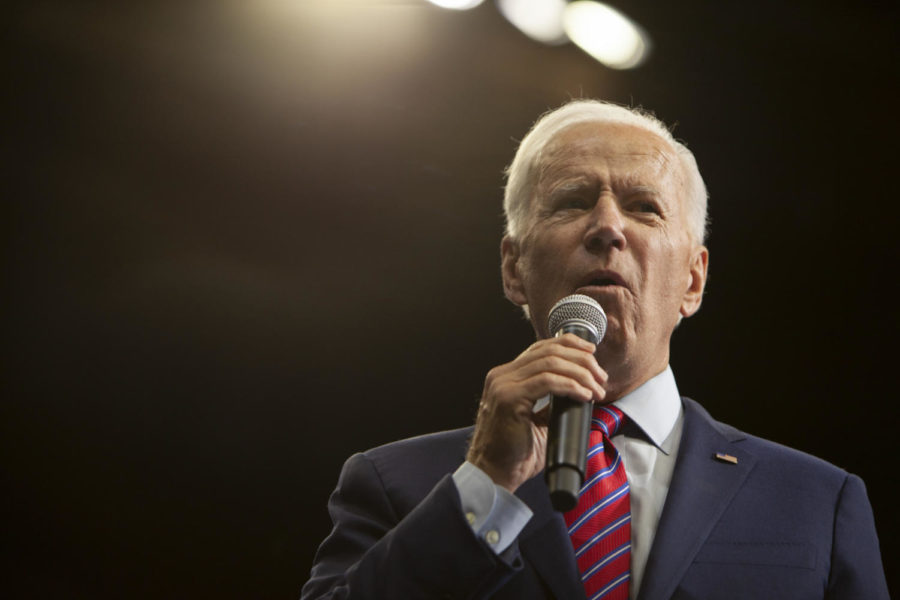Health care remains dominant issue among 2020 voters
Former Vice President Joe Biden speaks during the Iowa Democratic Party’s “Liberty and Justice Celebration” Nov. 1 in Des Moines, Iowa.
November 17, 2019
Health care is the single most important issue to American voters in the upcoming 2020 presidential election.
A YouGov poll released Wednesday found that health care is the most important issue to 19 percent of Americans, more than any other issue. The number rises to 29 percent among Democratic primary voters, the survey found.
“Pretty much everyone is concerned about their health,” said Mack Shelley, Iowa State professor and chair of the political science department.
As people age, health concerns become more of an issue, Shelley said. Older people turn out to vote in higher numbers than any other age bloc and health care follows them to the polls as an issue.
Another contributor to the importance of health care’s importance is the role it plays economically, Shelley said.
“[Health care] is a set of interlinked businesses…[that] add up to about one-sixth of the entire US economy,” Shelley said.
One of the major topics disputed within the ongoing health care debate in the Democratic party is the split between public versus private insurance. Several candidates support a fully subsidized national health care system, in which the government would be completely responsible for funding medical needs.
Presidential candidates Elizabeth Warren and Bernie Sanders support a “Medicare for All” bill Sanders authored that would provide “universal federal health insurance coverage,” Shelley said.
Both candidates have been questioned on how they would pay for the bill, with Sanders responding he would implement higher taxes, especially on wealthier individuals and corporations. Warren has said she would pay for “Medicare for All” without raising taxes on middle class Americans.
Kamala Harris proposed her own “Medicare for All” plan with a distinct funding mechanism from the Sanders plan that would avoid raising taxes on middle class Americans and preserve the ability of individuals to choose either private or public health insurance options.
Sanders version of the plan would have “no premiums, no deductibles, no copayments [and] no out-of-pocket expenses,” Shelley said.
The other side of the Democratic Party’s health care debate features a public option. A public option would mean people can choose to opt in to a government health insurance plan, but are still able to get private insurance if they desire.
Joe Biden’s health care plan would offer a public option, as well as expand on Obamacare.
Biden’s presidential campaign has criticized Warren’s health care plan in recent weeks for its elimination of private health insurance.
Biden released a press release on Nov. 6 compiling a number of Iowans who spoke out against Warren’s plan.
“It’s unacceptable and counterproductive for Senator Warren to question the Democratic bonafides of a candidate simply because they don’t agree with her more than $30 trillion health care plan,” said Mike Gronstal, a former majority leader of the Iowa Senate in a statement.
Gronstal has endorsed Biden’s presidential campaign.
Pete Buttigieg, who took the lead in the RealClearPolitics polling average of likely Iowa Democratic caucusgoers on Saturday, has a health care plan of “Medicare For All who want it.”
Buttigieg’s plan, like Biden’s, is a public option allowing for people to buy into a government health insurance plan.
“Buttigieg is taking a much more cautious and conservative approach on health care,” Shelley said.







